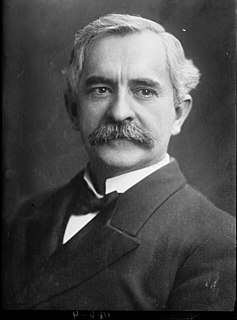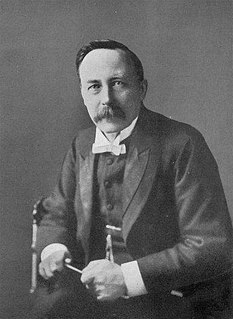A Quote by Charles Stanley
When we learn from experience, the scars of sin can lead us to restoration and a renewed intimacy with God.
Quote Topics
Related Quotes
Our inhuman enemy inspires the thought that God loves mankind, and that He quickly forgives this sin. But when we observe the guile of demons, then we see that after the commission of the sin, they suggest to us that God is a righteous and implacable Judge. The first they say in order to lead us to sin, the second, in order to weigh us down in despair.
God uses suffering to purge sin from our lives, strengthen our commitment to Him, force us to depend on grace, bind us together with other believers, produce discernment, foster sensitivity, discipline our minds, spend our time wisely, stretch our hope, cause us to know Christ better, make us long for truth, lead us to repentance of sin, teach us to give thanks in time of sorrow, increase faith, and strengthen character.
Leadership belongs to all of us. I'm a big believer in John Maxwell, a leadership speaker and author, who talks about the 360-degree leader. Before leading others, you have to learn to lead yourself. Wherever you work in an organization you have to learn to lead up, lead down, and lead side to side. Leadership belongs to all of us. You have to see yourself, and believe in yourself in the way that we are talking about here to give to those that you lead.
Faith stands or falls on the truth that the future with God is more satisfying than the one promised by sin. Where this truth is embraced and God is cherished above all, the power of sin is broken. The power of sin is the power of deceit. Sin has power through promising a false future. In temptation sin comes to us and says: "The future with God on his narrow way is hard and unhappy, but the way I promise is pleasant and satisfying." The power of sin is in the power of this lie.
Within each of us exists the image of God, however disfigured and corrupted by sin it may presently be. God is able to recover this image through grace as we are conformed to Christ. Just as the figure of David lay hidden within the marble, discernible only to the eye of its creator, so the image of God (however tarnished by sin) lies within us, see and known by God Himself. Yet God loves us while we are still sinners. He doesn't have to wait until we stop sinning. Acceptance of His love is a major step along the road that leads to our liberation from the tyranny of sin.
God has decided the rules of life, whereby you don't trespass on anybody else's rights, and sin is something that upsets the balance of things. There are three types of sin: sin against yourself; sin against other people; and sin against God. People often sin against themselves and others and misbehave with God, too.
There are two gods. The god our teachers teach us about, and the God who teaches us. The god about whom people usually talk, and the God who talks to us. The god we learn to fear, and the God who speaks to us of mercy. The god who is somewhere up on high, and the God who is here in our daily lives. The god who demands punishment, and the God who forgives us our trespasses. The god who threatens us with the torments of Hell, and the God who shows us the true path.
There are two gods. A god who casts us off because of our sins, and a God who calls to us with His love.
God did not create the strife between races, nor did He intend for it to be that way. Strife between races and ethnic groups comes from sin-and sin resides in the human heart. The Bible says, “What causes fights and quarrels among you? Don’t they come from your desires that battle within you?” (James 4:1). When one group or one race claims it is superior to another, pride has taken control-and pride is a sin.Instead, God wants us to learn to accept each other and love each other-and this becomes possible, as we turn our lives over to Christ and allow Him to change us from within.
What is sin? It is the glory of God not honored. The holiness of God not reverenced. The greatness of God not admired. The power of God not praised. The truth of God not sought. The wisdom of God not esteemed. The beauty of God not treasured. The goodness of God not savored. The faithfulness of God not trusted. The commandments of God not obeyed. The justice of God not respected. The wrath of God not feared. The grace of God not cherished. The presence of God not prized. The person of God not loved. That is sin.


































